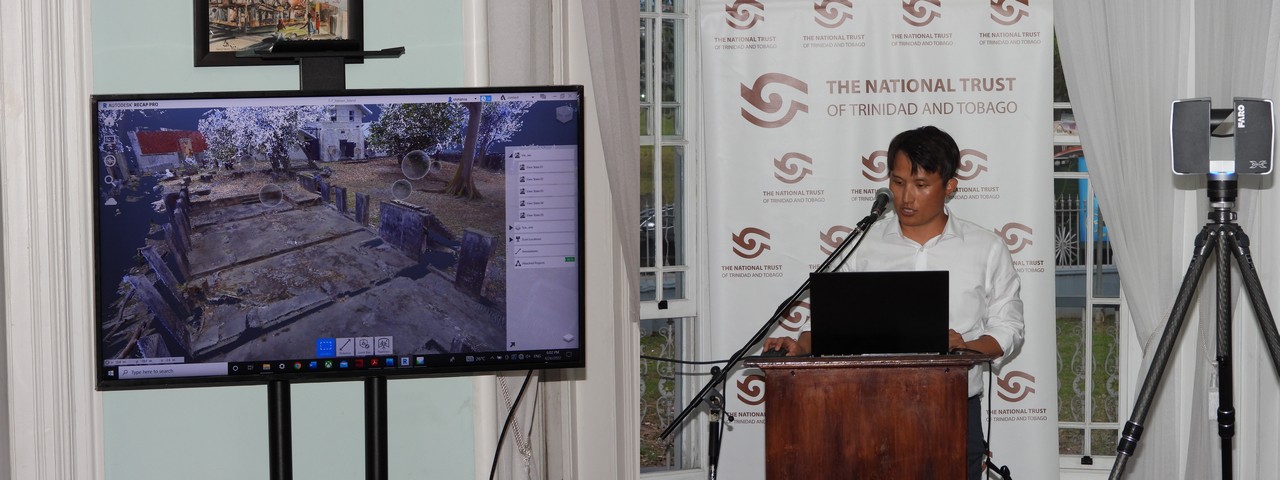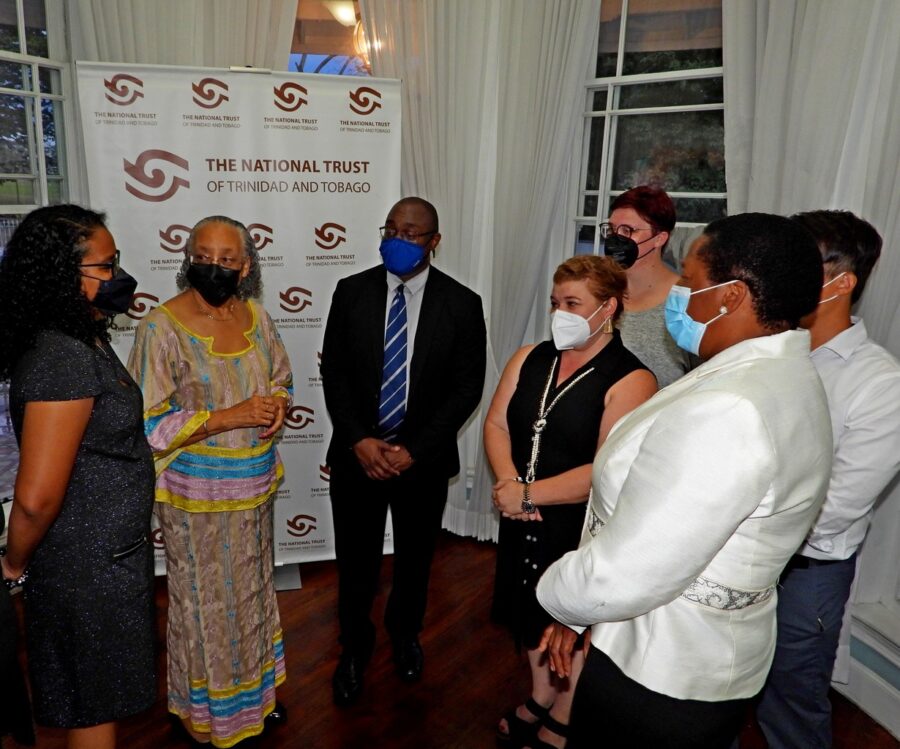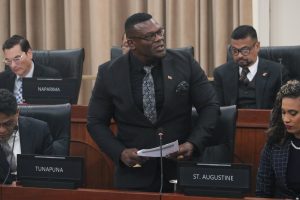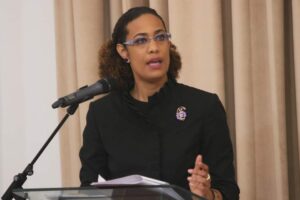By Sue-Ann Wayow
A RESEARCH programme costing approximately US$200,000 to deal with the issue of climate change and the effect on historic and coastal communities was launched recently.
The National Trust of Trinidad and Tobago in a release on Tuesday stated that the project has long been an important goal and through the grant from the US Embassy’s Ambassador’s Fund for Cultural Preservation (AFCP), the research has begun.
On April 26, at a launch reception for stakeholders at the Mille Fleurs heritage site in St. Clair, Chairman of the National Trust Margaret McDowall introduced the start of the Trust’s “Resilient Heritage Trinidad and Tobago” research program.
The project is being done in collaboration with the University of Florida’s Historic Preservation Program (UFHPP) and entails the use of advanced 3D laser scanning and photogrammetry tools to digitally map the landscape and heritage structures at two pilot sites in Trinidad – downtown Port-of-Spain and Nelson Island.

This data, together with feedback from a wide cross section of stakeholders in Trinidad and Tobago obtained though consultations which immediately followed the launch, will be used to produce a vulnerability assessment report that will include conservation management plans, and strategies for enhancing resilience, the release stated.
Speaking at the reception, US Chargé d’Affaires Shante Moore said, “One of the primary goals of this initiative is to create a model framework for conserving and adapting heritage sites across Trinidad and Tobago and increase resilience to climate change and sea level rise.”
He also congratulated the National Trust on its proposal being among 32 selected from 172 concept notes submitted to the US Department of State’s Bureau of Education and Cultural Affairs, adding that it was a tremendous achievement for Trinidad and Tobago.
Trinidad and Tobago was the only English-speaking country in the Western Hemisphere to be awarded the AFCP grant in 2021.
Minister of Planning and Development Penelope Beckles-Robinson expressed confidence that the research will pave the way to address the risks and vulnerabilities to heritage sites and the wider community.
She said, “It can bring us closer to the realisation that at a global level, we have a common responsibility to each other across counties and across continents.”
Acting Director of the Historic Preservation program at University of Florida Cleary Larkin explained that at Nelson Island, the team was undertaking a conditions assessment of the structures, providing digital documentation, and existing conditions drawings, and making recommendations for Conservation Management Planning.
“For the downtown resources, we will be using digital documentation to assess and visualize how climate change and water impact your heritage resources,” he said.
This is the initial stage of a series of activities which will be taking place over the next two years, with a Caribbean-wide conference on managing the impact of climate change on heritage sites carded for next March 2023 in Trinidad and Tobago, the National Trust stated.
The grant includes provisions for UFHPP to provide specialized training to National Trust staff and other local agencies, academia and other stakeholders who are involved in the project thereby boosting the local capacity for making effective interventions in heritage preservation.
McDowall also said that the project also had technology transfer benefits for Trinidad and Tobago, which could be shared with the wider Caribbean region as many of the islands face similar hazards.
A Resilient Heritage Trinidad and Tobago website will also be launched to provide access to project information and interested persons can email resilientheritage@
![]()












